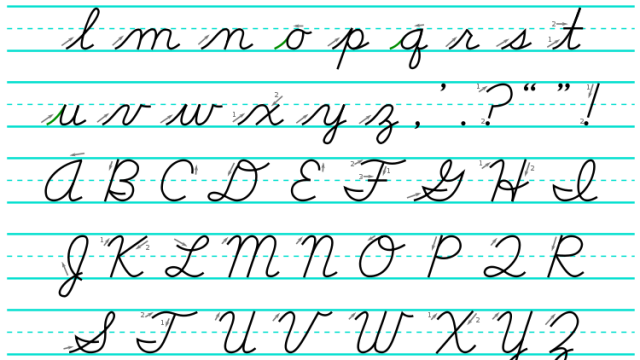Organic = Good, Right? OOOPS!

Organic = Good, and Mass-produced = Bad. Right? The latest example that that assumption is naïve, and wrong, and potentially dangerous, is the recent discovery that the worst food-borne disease outbreak in Europe in decades may have been carried by organic bean sprouts. But don’t pick on the sprouts, and don’t even pick on Organic. The danger here is the way you and I perceive and respond to risk, a subconscious decision-making process that often works well, but which sometimes can create risks all by itself.
Setting aside the issue of whether organic food is intrinsically any healthier than non-organic food, or safer because pesticides have not been used, organic farming offers no advantages over non-organic agriculture when it comes to by far the greatest risk our food poses, the risk that what we eat might carry germs. The suspected sprouts in Germany are only the most recent example of organically produced food believed to have made people sick. Organic eggs and spinach and lettuce have caused big outbreaks in the U.S. in the past few years. The way those foods are produced and processed and shipped is part of the risk, but we make it worse because of the positive/healthy/better-for-you reputation organic food enjoys. That encourages the assumption that organic food poses less danger of carrying disease. That leads to less of the caution that should be applied in handling all foods; washing, cooking, temperature control. So our benign assumptions about organic food can raise our risk.
But this is just one small example of a larger and more profound phenomenon, something which in “How Risky Is It, Really? Why Our Fears Don’t Match the Facts” I call The Perception Gap, when our feelings about a risk don’t match the facts and the gap between our emotions and the evidence creates risks of its own. Here are a few others similar to organic food;
– We are less afraid of herbal and natural medicines than of the human-produced kind – pharmaceuticals. That can be dangerously dumb. Ephedra and St. John’s Wort are just a couple high profile cases of natural drugs that caused harm. A 2004 study of Ayurvedic herbal medicines found that one sample in five purchased from local stores in Boston contained up to 10,000 times more lead, mercury, or arsenic than U.S. safety standards deemed safe.
– Most of us are less afraid of radiation from the sun, which causes 1.3 million cases of skin cancer a year in the U.S. and approximately 8,000 deaths from melanoma, than radiation from cell phones and nuclear power plants.
– We are less afraid of mixing the genes of plants indiscriminately by “natural” hybridization than by the much more precise and controlled process of changing just one gene in a lab.
What’s the common thread in what seems like so much irrationality? The perception of risk is not just a matter of the facts, but also depends on how those facts feel. One of the subconscious psychological filters we apply when assessing how scary something feels is whether it’s natural or human-made. Natural risks feel less scary. Human-made risks feel scarier. The sun is far more likely to give you cancer than radiation from a nuclear power plant or a cell phone or from power lines, but the sun is natural and the others are human-made, so even though they are all radiation risks, they don’t feel the same.
The problem is, this can lead to problems. Not worrying enough about natural risks and worrying more than we need to about human-made ones may not always lead to the healthiest choices.
– People who worry more about human-made vaccines than the natural diseases those vaccines keep in check are making a dangerous mistake, for themselves and for the community in which otherwise-controllable diseases can then spread.
– Fear of nuclear radiation contributes to energy policy that favors the use of coal, which produces vastly more harm to human and environmental health (even considering the harms from Chernobyl and Fukushima), while lack of fear of radiation from the sun raises your risk of skin cancer.
– People afraid of genetically modified food impede the use of a technology that could improve the health of millions. Yet many of those most worried about GM food raise their risk by taking (and swearing by) unregulated herbal medicines which cause harms we’d scream bloody murder about if they were caused by drugs from the pharmaceutical industry.
Risk perception is intrinsically subjective. At this point in human evolution there is no way to take emotions out of the process. Perfect objective reason, as appealing as it is, is just not possible. (As Ambrose Bierce once wrote, “Brain, n, the organ with which we think we think.”) So criticizing this as irrational is wrong, and counterproductive, because it traps us in a fruitless debate over how we should go about perceiving risk more objectively, rather than moving on to the real question…how do we reduce the risk of getting risk wrong when our feelings don’t match the facts.
Here’s what we can do. We can heed the insights from a rich body of research that has revealed in detail where the Perception Gap comes from. We know that natural risks are less scary, voluntary risks are less scary, risks over which we have control are less scary, risks with which we’re familiar are less scary. And those are just few of the details risk perception research has discovered.
We can apply this self-awareness to protect ourselves from the pitfalls of our perceptions. The next time you face a choice that involves risk about something natural or about something human-made, just ask yourself how much this factor might be playing a role in how you feel about the choice, and whether the emotional characteristic that its natural or human-made has anything to do with it’s actual factual riskiness. Just add this element to your decision making process. Will thinking consciously about such emotional factors override them? No, not completely. But it might help you think a little more carefully, and hopefully, help you make healthier choices for yourself, your family, and your community.
Time for a delicious organic salad. But not before I wash everything really well.





